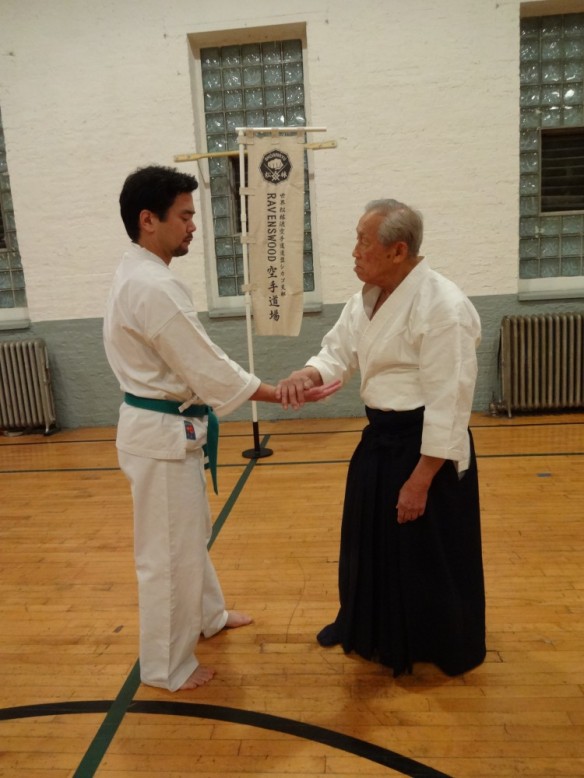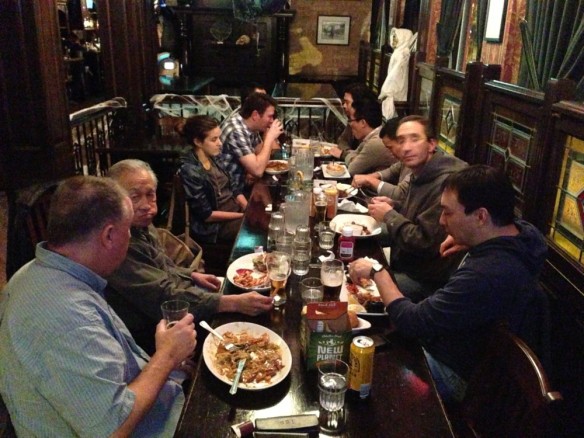“Night at the Nisei Lounge” (2013)
(reposted from the blog of Chicago Aikido Club)Erik Matsunaga, head instructor of Ravenswood Shorin-ryu Karate Dojo and who profiled Chicago Aikido Club (CAC) senior instructor Joe Takehara Sensei in Discover Nikkei recently shared this memorable photo and memory from 2013 with members of the two dojo getting together at a Japanese American community fundraiser at the Nisei Lounge bar in Wrigleyville.
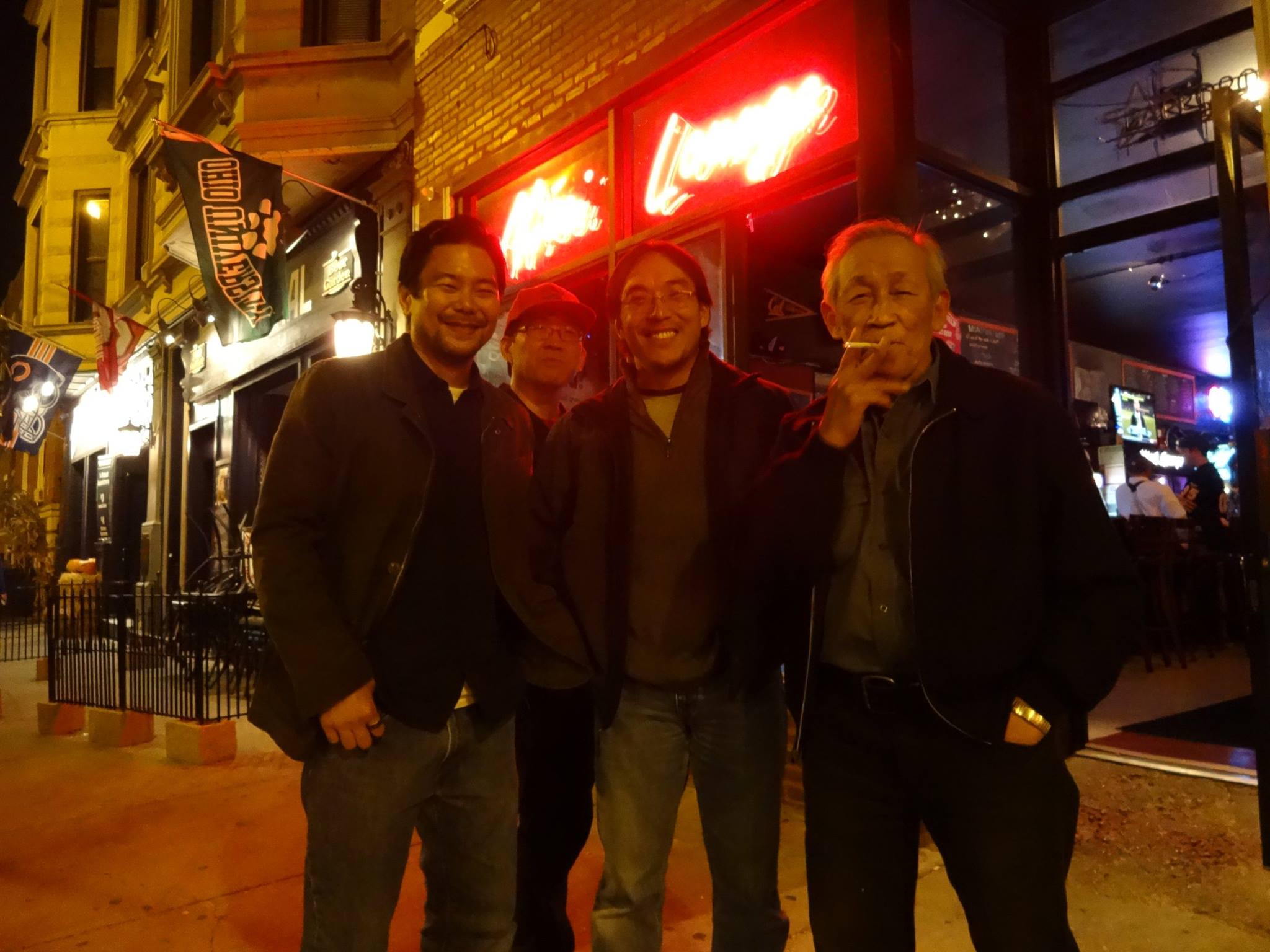
Left to Right: Ryan Yokota, Dean Yamada, Dwight Sora, Joe Takehara
Thursday, October 10, 2013
“Night at the Nisei Lounge” was a benefit fundraiser for the Japanese American Service Committee. Nisei Lounge is among the final vestiges of what used to be a sizeable Japanese American community that once resided in the shadows of Wrigley Field.
At one time, Takehara sensei lived on Newport Avenue, a half block east of the Nisei Lounge. He opened his dental practice one block south on Clark, across the street from Tony Muranaka’s home, whose matless, marble-floored basement served as the original gathering place for the Illinois Aikido Club. Incidentally, Detective Muranaka was the first Nisei on the Chicago Police Department.
After moving out of Muranaka's 3-flat basement, the IAC opened its first dedicated, storefront dojo with makeshift mats across the street from John Omori’s (co-founder of IAC) optometry practice.
And the Japanese American Service Committee, whose Uptown facility a mile-and-a-half up Clark Street currently hosts Takehara sensei and the Chicago Aikido Club, once triangulated these positions at its old location two blocks south of Nisei Lounge, on the corner of Sheffield and School.
I’d venture to guess Takehara sensei was the first Nisei his generation’s namesake tavern had seen in a long time, and quite possibly the only one since. For more information as to why that would be, peruse & listen to WBEZ’s recent Curious City feature: "What Happened to Chicago's Japanese Neighborhood?"
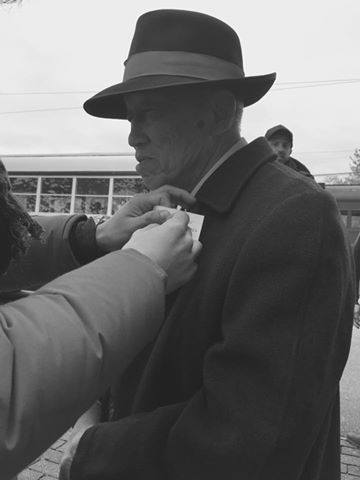







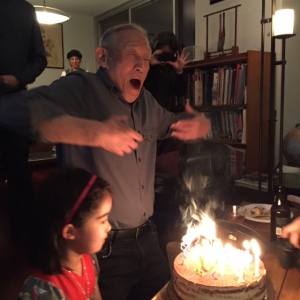



.jpg)

